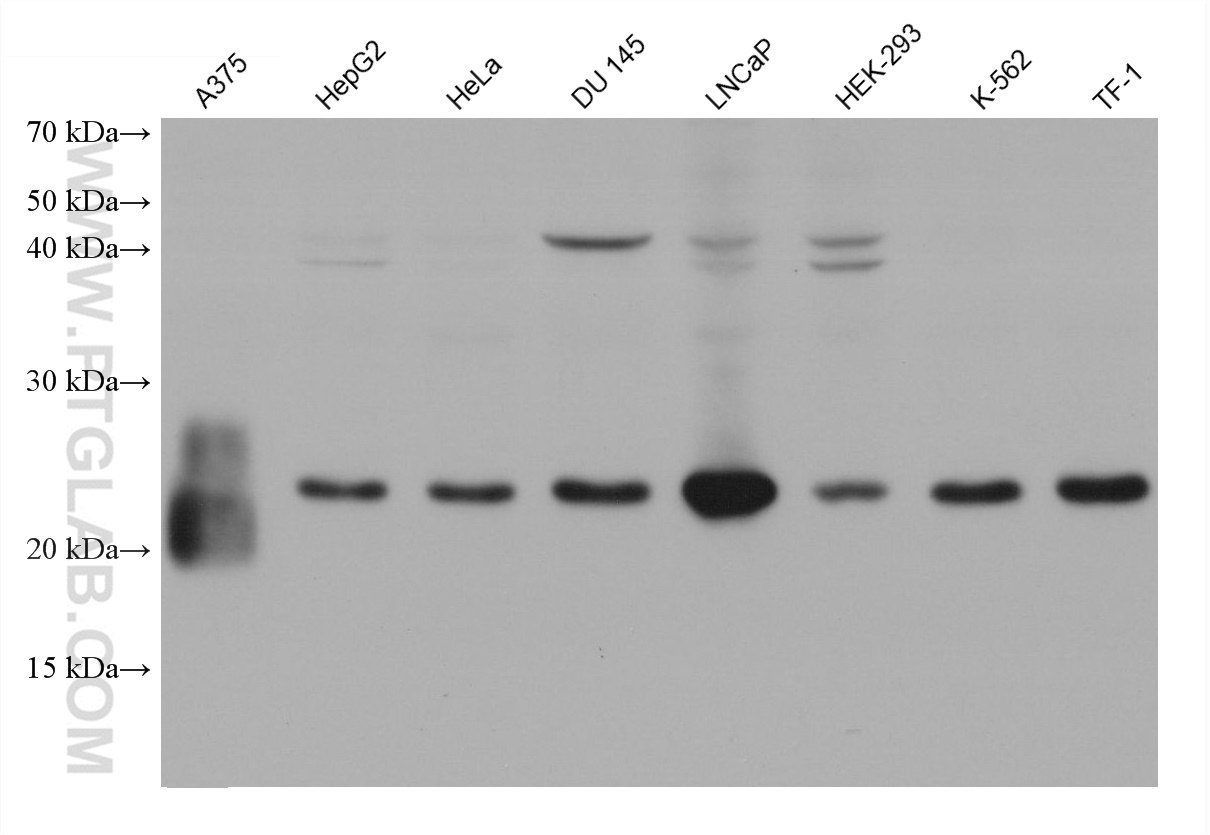验证数据展示
经过测试的应用
| Positive WB detected in | A375 cells, HepG2 cells, HeLa cells, DU 145 cells, LNCaP cells, HEK-293 cells, K-562 cells, TF-1 cells, HL-60 cells |
推荐稀释比
| 应用 | 推荐稀释比 |
|---|---|
| Western Blot (WB) | WB : 1:2000-1:10000 |
| It is recommended that this reagent should be titrated in each testing system to obtain optimal results. | |
| Sample-dependent, Check data in validation data gallery. | |
产品信息
68923-1-Ig targets THEM4 in WB, ELISA applications and shows reactivity with human samples.
| 经测试应用 | WB, ELISA Application Description |
| 经测试反应性 | human |
| 免疫原 | THEM4 fusion protein Ag6296 种属同源性预测 |
| 宿主/亚型 | Mouse / IgG2a |
| 抗体类别 | Monoclonal |
| 产品类型 | Antibody |
| 全称 | thioesterase superfamily member 4 |
| 别名 | CTMP, EC:3.1.2.2, Carboxyl-terminal modulator protein, Acyl-coenzyme A thioesterase THEM4, Acyl-CoA thioesterase THEM4 |
| 计算分子量 | 27 kDa |
| 观测分子量 | 26 kDa |
| GenBank蛋白编号 | BC065277 |
| 基因名称 | CTMP |
| Gene ID (NCBI) | 117145 |
| 偶联类型 | Unconjugated |
| 形式 | Liquid |
| 纯化方式 | Protein A purification |
| UNIPROT ID | Q5T1C6 |
| 储存缓冲液 | PBS with 0.02% sodium azide and 50% glycerol , pH 7.3 |
| 储存条件 | Store at -20°C. Stable for one year after shipment. Aliquoting is unnecessary for -20oC storage. |
背景介绍
THEM4, which stands for thioesterase superfamily member 4, is a gene in humans that encodes a protein involved in the regulation of the protein kinase B (PKB), also known as Akt pathway. This gene is ubiquitously expressed in various tissues, with notable expression in the kidney and testis. THEM4 can also promote the proliferation of tumor cells by positively regulating Akt activity in breast cancer and nasopharyngeal carcinoma, which presents a contrasting role to its initial characterization.
实验方案
| Product Specific Protocols | |
|---|---|
| WB protocol for THEM4 antibody 68923-1-Ig | Download protocol |
| Standard Protocols | |
|---|---|
| Click here to view our Standard Protocols |
